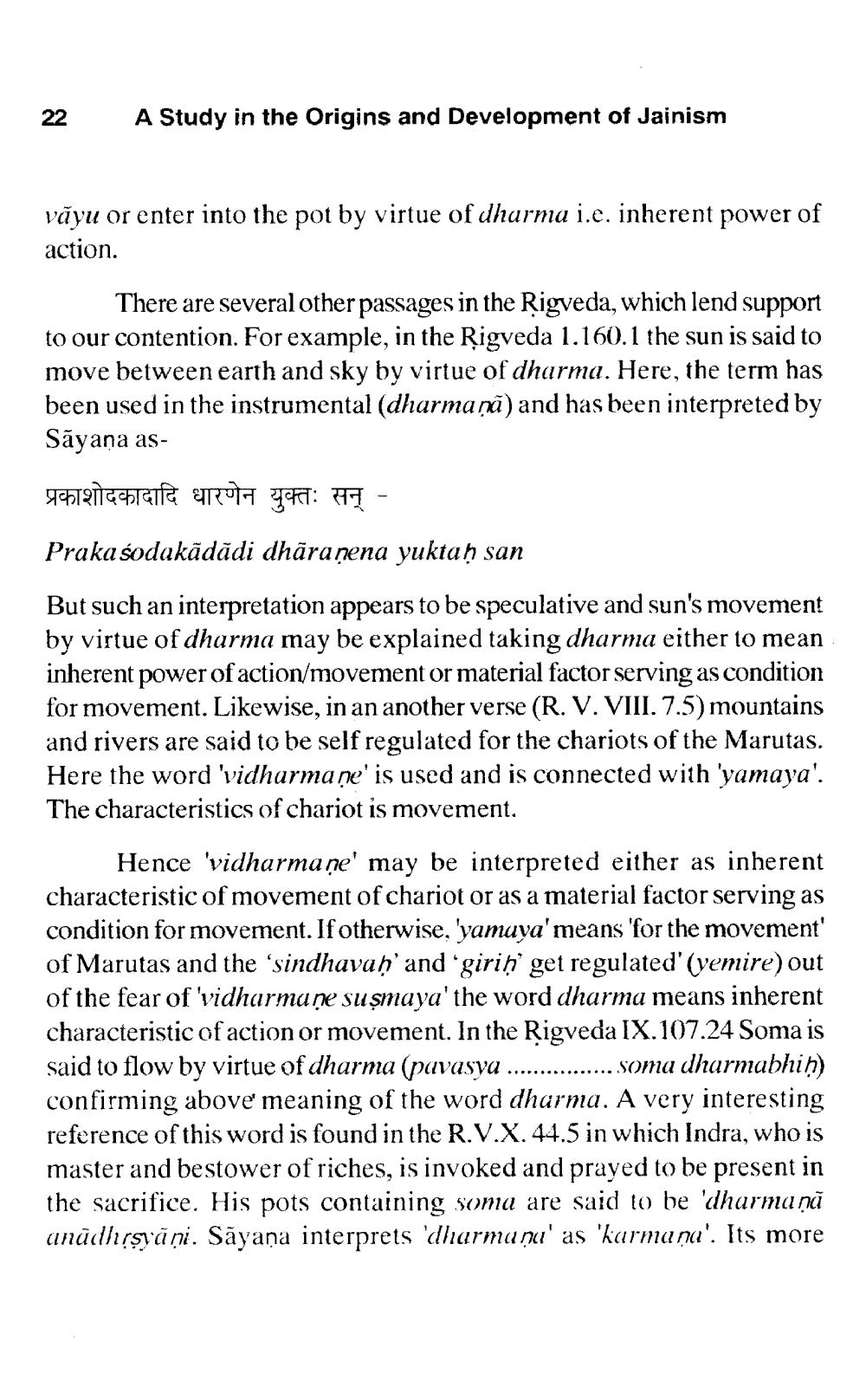________________
22
A Study in the Origins and Development of Jainism
vãyu or enter into the pot by virtue of dharma i.e. inherent power of action.
There are several other passages in the Rigveda, which lend support to our contention. For example, in the Rigveda 1.160.1 the sun is said to move between earth and sky by virtue of dharma. Here, the term has been used in the instrumental (dharmaņā) and has been interpreted by Sãyana as
प्रकाशोदकादादि धारणेन युक्तः सन् - Prakaśodakādādi dhāraņena yuktaḥ san But such an interpretation appears to be speculative and sun's movement by virtue of dharma may be explained taking dharma either to mean inherent power of action/movement or material factor serving as condition for movement. Likewise, in an another verse (R. V. VIII. 7.5) mountains and rivers are said to be self regulated for the chariots of the Marutas, Here the word 'vidharma ne' is used and is connected with 'yamaya'. The characteristics of chariot is movement.
Hence 'vidharmane' may be interpreted either as inherent characteristic of movement of chariot or as a material factor serving as condition for movement. If otherwise, 'yamuya' means 'for the movement of Marutas and the ‘sindhavaḥ' and 'giriḥ get regulated' (yemire) out of the fear of 'vidharmane suşmaya' the word dharma means inherent characteristic of action or movement. In the Rigveda IX.107.24 Soma is said to flow by virtue of dharma (pavasya ................ Soma dharmabhiņ) confirming above meaning of the word dharma. A very interesting reference of this word is found in the R.V.X. 44.5 in which Indra, who is master and bestower of riches, is invoked and prayed to be present in the sacrifice. His pots containing soma are said to be 'dharmaņā anādthirsyā ņi. Sãyaņa interprets 'dharmaņu' as 'karmana'. Its more




